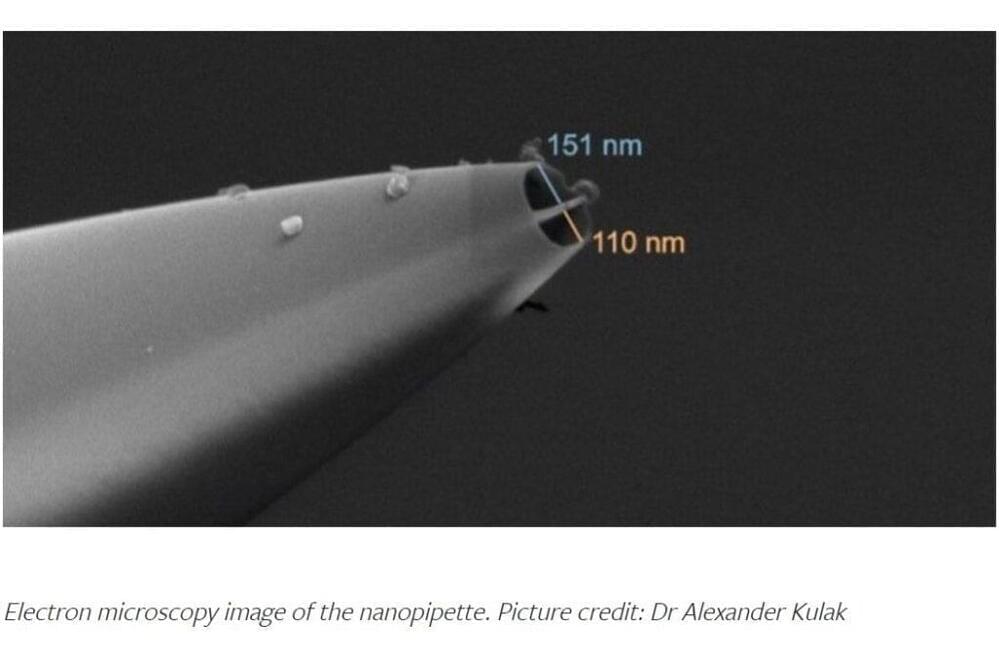A groundbreaking nanosurgical tool — about 500 times thinner than a human hair — could be transformative for cancer research and give insights into treatment resistance that no other technology has been able to do, according to a new study.
The high-tech double-barrel nanopipette, developed by University of Leeds scientists, and applied to the global medical challenge of cancer, has — for the first time — enabled researchers to see how individual living cancer cells react to treatment and change over time — providing vital understanding that could help doctors develop more effective cancer medication.
The tool has two nanoscopic needles, meaning it can simultaneously inject and extract a sample from the same cell, expanding its potential uses. And the platform’s high level of semi-automation has sped up the process dramatically, enabling scientists to extract data from many more individual cells, with far greater accuracy and efficiency than previously possible, the study shows.









Comments are closed.